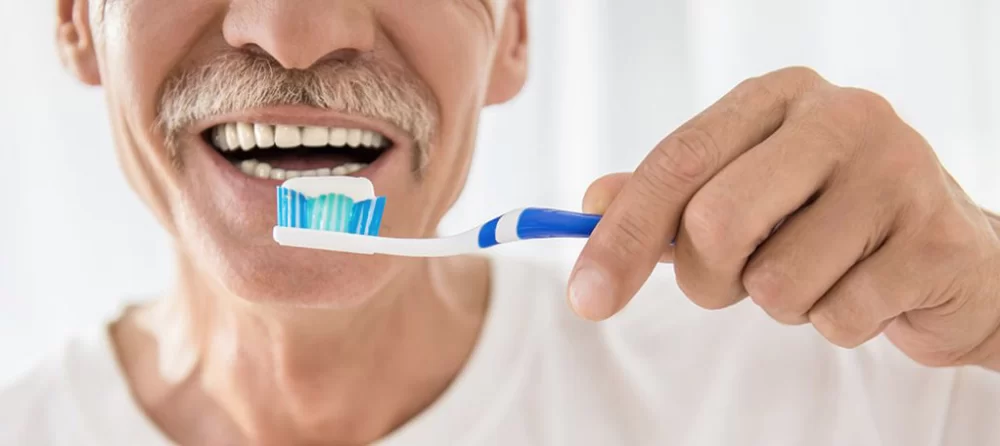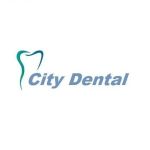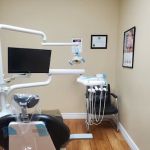
What Caring for My Aging Mother Taught Me About Dental Health
1. When a Toothache Became a Wake-Up Call
My mother had always been meticulous about her appearance. Hair curled, nails polished, a dab of lipstick for every grocery trip. But dental care? That wasn’t something she ever talked about—until a dull ache in her upper jaw turned into a sharp pain that had her clutching her cheek at 3 AM.
That emergency visit to the dentist revealed she had both advanced gum disease and multiple decaying teeth. The worst part? Most of it could have been prevented. As I sat beside her in the waiting room, watching her try to hide her discomfort, I made it my mission to understand how we let it get this far—and what I could do to make sure it didn’t happen again.
2. Why Seniors Face Unique Dental Challenges
Aging changes everything, including the mouth. What I learned shocked me. Seniors are more prone to both tooth decay and gum disease, not because they stop caring, but because the odds are simply stacked against them.
Many older adults take medications that dry out the mouth. Saliva plays a crucial role in washing away food and neutralizing bacteria. Without it, decay thrives. Receding gums, a natural part of aging, expose vulnerable tooth roots. Add in less dexterity due to arthritis or other conditions, and suddenly brushing and flossing become difficult tasks.
My mom had always been independent, but when I watched her try to thread floss between her teeth with shaky hands, I understood how much she was struggling. And yet she never asked for help.
3. Building a Simple Daily Routine That Works
We didn’t try to overhaul everything at once. Instead, we created a manageable, realistic routine tailored to her capabilities. Here’s what worked best:
- Electric Toothbrush: We swapped her manual brush for an electric one with a large grip and a timer. It made brushing easier and more effective, especially with her arthritis.
- Floss Alternatives: Instead of traditional floss, we used soft floss picks and water flossers. These were gentler and easier for her to use without help.
- Alcohol-Free Mouthwash: A gentle rinse helped keep bacteria under control without irritating her gums or drying out her mouth.
- Chewing Gum with Xylitol: To boost saliva production, we added sugar-free gum between meals. This small step made a big difference in her dry mouth symptoms.
4. What We Learned from Regular Dental Checkups
Before the toothache, my mother hadn’t seen a dentist in nearly five years. She hated the idea of being lectured or feeling embarrassed. But after her emergency treatment, we found a compassionate dentist through Dentistry Toothtruth who specialized in senior care.
At her first follow-up, they checked for plaque buildup, measured her gum pockets, and even screened for oral cancer. It wasn’t just about clean teeth—it was about protecting her health. These checkups helped us stay ahead of small issues before they turned into big ones.
After a few visits, her attitude changed. She looked forward to her appointments, mostly because they were painless and gave her peace of mind. Knowing someone was watching out for her dental health made her feel cared for.
5. The Emotional Impact of Oral Health in Aging
It wasn’t until I saw my mom cover her mouth when she laughed that I realized how much her dental problems had affected her confidence. She avoided smiling in family photos and hesitated to speak clearly when meeting new people.
After several restorative procedures—fillings, cleanings, and deep gum therapy—her smile slowly returned. And with it, her sense of self. That change was far more powerful than any medication we had ever given her. Her improved oral health gave her freedom to engage with life again.
I learned that dental health isn’t just physical—it’s emotional, social, and deeply personal. For seniors, the ability to smile without fear is priceless.
6. Diet Adjustments That Made a Difference
One thing we hadn’t considered until later was the role diet played in her dental health. Seniors often gravitate toward softer foods—white bread, mashed potatoes, sugary snacks—because they’re easier to chew. But these foods cling to the teeth and encourage decay.
We made a few changes:
- Switched to whole grains and high-fiber foods that stimulated chewing and saliva flow
- Added crunchy fruits and vegetables like apples and carrots to naturally scrub her teeth
- Reduced sugary snacks and replaced them with cheese, nuts, or yogurt
- Encouraged water over juice or soda to keep her mouth clean and hydrated
These changes weren’t drastic, but over time, they supported everything else we were doing to prevent decay and gum disease.
7. The Power of Empowerment and Education
One of the most powerful moments in our journey was when my mom started teaching her friends about what she had learned. At their weekly senior group, she brought up how easy it was to overlook dental care—and how it had almost cost her more than a tooth.
She became an advocate, encouraging others to see their dentists, try new products, and ask for help when needed. Watching her reclaim her voice in that way was beautiful.
Now, even in her 80s, she has a mouth free of pain, a calendar full of social events, and a toothbrush she’s proud to use every day.







 Sweet City Smiles5.0 (513 review)
Sweet City Smiles5.0 (513 review) Hillside Family Dentistry4.0 (108 review)
Hillside Family Dentistry4.0 (108 review) Jae Chae DMD4.0 (26 review)
Jae Chae DMD4.0 (26 review) Eastern Dental4.0 (551 review)
Eastern Dental4.0 (551 review) Densley Dental4.0 (260 review)
Densley Dental4.0 (260 review) Arlington Dental Group and Orthodontics4.0 (210 review)
Arlington Dental Group and Orthodontics4.0 (210 review) The Importance of Oral Health Education During Pregnancy for a Healthy Pregnancy
The Importance of Oral Health Education During Pregnancy for a Healthy Pregnancy Best Tips for Brushing Your Teeth Properly for Healthy Gums: Essential Techniques for Oral Health
Best Tips for Brushing Your Teeth Properly for Healthy Gums: Essential Techniques for Oral Health Why Skipping Dental Checkups Can Lead to Bigger Oral Health Problems
Why Skipping Dental Checkups Can Lead to Bigger Oral Health Problems Advantages of Porcelain Dental Restorations
Advantages of Porcelain Dental Restorations How Can Diabetes Cause Tooth and Gum Problems? Preventing and Managing Oral Health Issues
How Can Diabetes Cause Tooth and Gum Problems? Preventing and Managing Oral Health Issues Healthy Habits for Promoting Good Oral Health and Hygiene: Tips for a Healthy Smile
Healthy Habits for Promoting Good Oral Health and Hygiene: Tips for a Healthy Smile